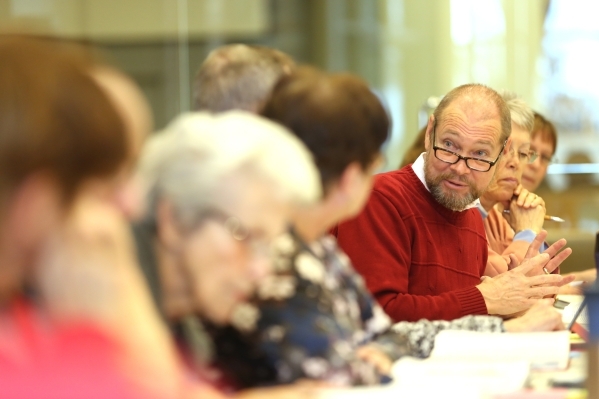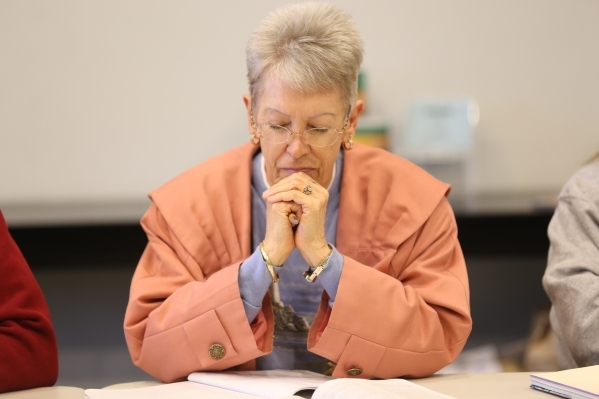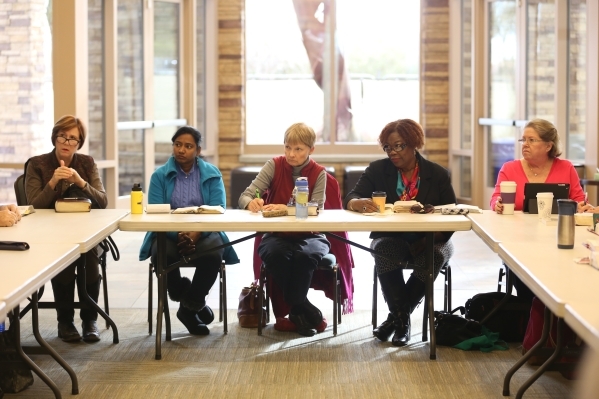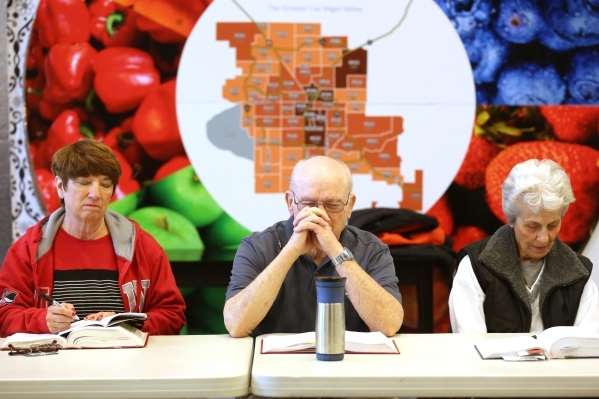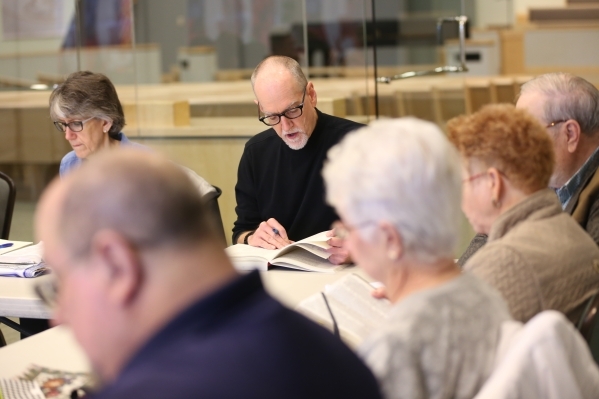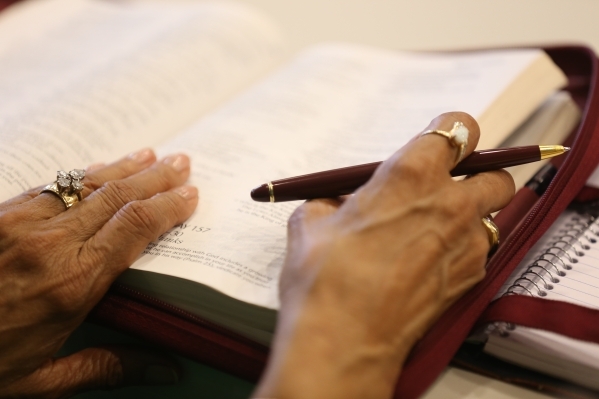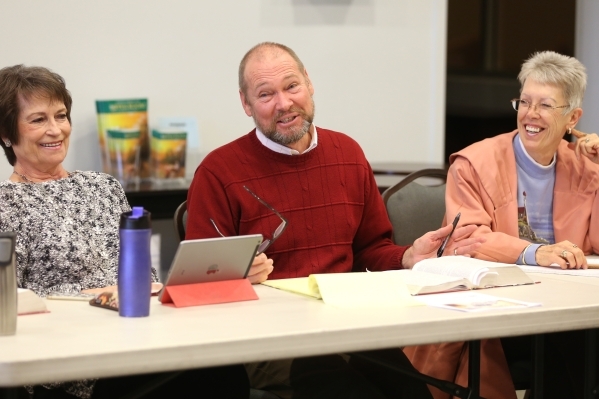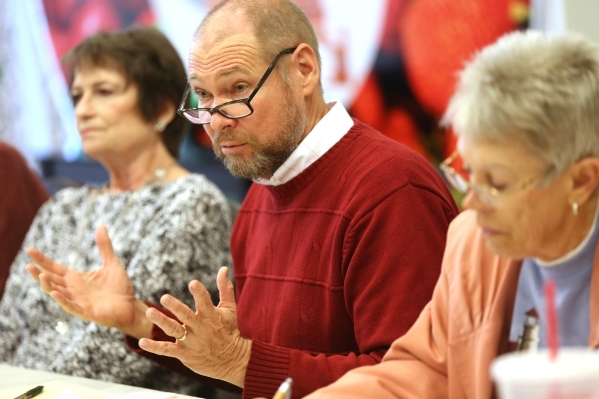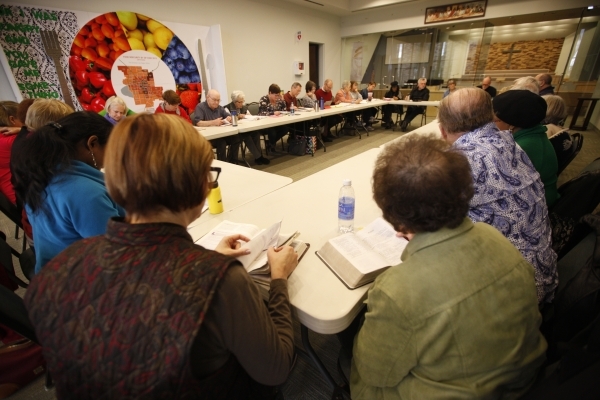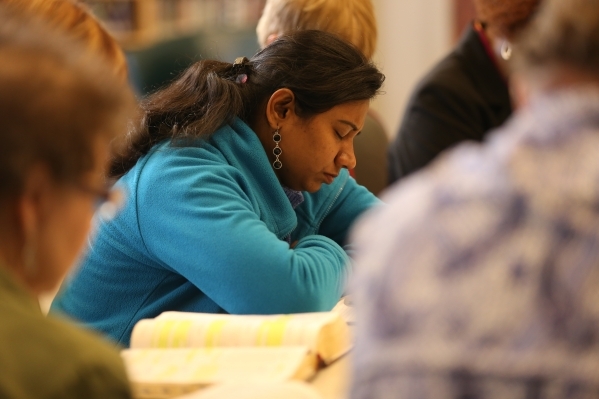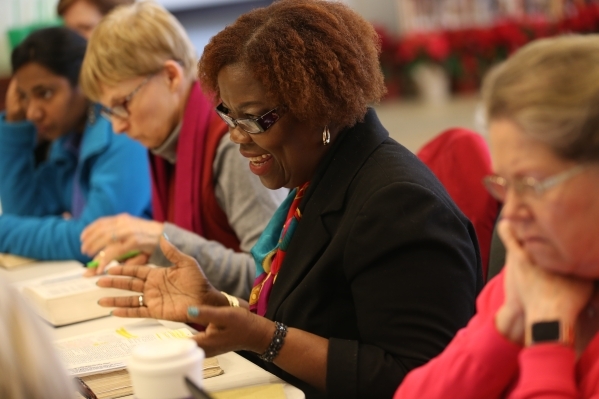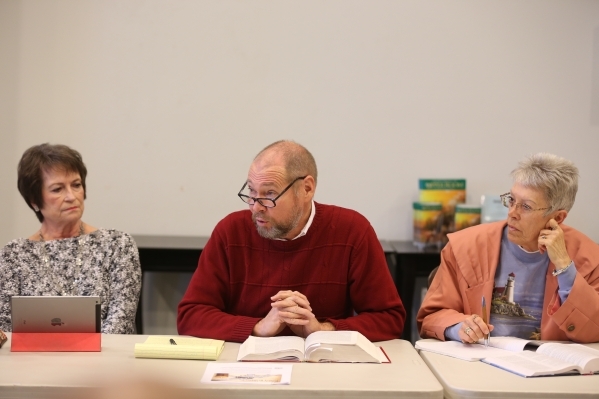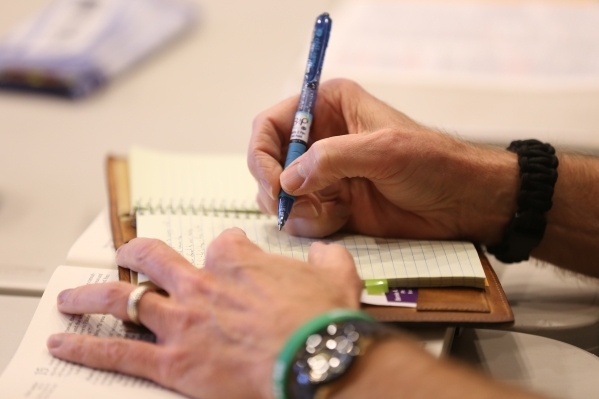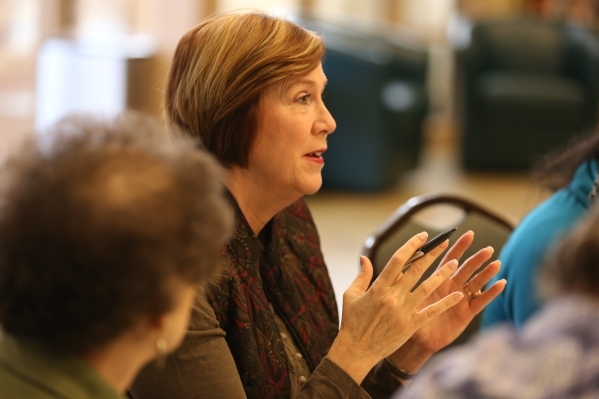Mainline Protestant churches strive to maintain relevance
The Rev. Dr. Kenneth C. Harper, pastor emeritus of Green Valley Presbyterian Church in Henderson, recalls the time a City Council candidate came to his church in Illinois one Sunday. It was the Sunday before Election Day.
"It seemed important in that cultural environment for him to be seen as a churchgoing person, even though that wasn't his regular pattern," Harper says.
But no longer.
"The culture does not support that kind of identification," he adds.
According to a 2015 Pew Research Center report, religion in the U.S. may be undergoing a facelift. "America's Changing Religious Landscape" shows a decline in the predominant Christian share of the U.S. population by 7.8 percent, from 78.4 percent in 2007, to 70.6 percent in 2014.
Mainline Protestant churches took the bulk of the losses, followed by Roman Catholics, although the Catholic decline has been disputed by other reports.
But those identifying as "unaffiliated" are gaining ground. Atheists, agnostics and "nothing in particular" are up by 6.7 percent, from 16.1 percent in 2007 to 22.8 percent in 2014. Those who identify as Muslim, Hindu and other non-Christian faiths are also on the rise, up, overall, by 1.2 percent.
What could it all mean for mainline Protestant churches, such as Methodists, Presbyterians and Lutherans?
One answer from Greg Smith, associate director of research at Pew: "Generational replacement."
With older Americans and baby boomers passing away, the new generation rising up to replace them is "simply far less religious, far less likely to identify with Christianity, including mainline Protestantism," Smith says.
As some congregations age past child-bearing years, "the future of that group is not as bright as for groups with young families," he points out.
There's also "religious switching," Americans migrating from one religious group to another.
"There are more people who are raised within the mainline tradition who leave than there are who convert to it," says Smith, citing a rate of about two people lost to every one gained by mainline Protestant churches.
The Rev. David Devereaux, senior pastor at Desert Spring United Methodist Church, agrees that many churches are declining. But, since he arrived at his own church in Summerlin in 2008, worship attendance has more than doubled, from about 395 per week to more than 850, he notes.
At a recent Sunday service, a quick look around his church reveals plenty of young faces and families. He estimates that the congregation includes 215 children.
"The decline of a lot of churches predates millennials," he observes. "And really has to do with the ability to respond to the culture around us."
Devereaux, who also does consulting to help other churches reboot, says that the key to cultural relevance is "giving life away."
"It can't be about, 'We need you to come be a part of us to help us do what we want to do,'" he explains. "It has to be, we're here to help you succeed in what God wants you to do."
And, church work isn't what happens inside the building.
"We're saying, 'How can you carry out your purpose?'" he adds.
Among the accomplishments he reports when it comes to his church and its congregants:
• Presenting Three Square, a local food bank, with a $55,000 check.
• Raising $81,000, and building a Habitat for Humanity home last Christmas.
• Starting a dog therapy program called "Reading with Rascal," in which kids read to dogs at the church once a month, to sharpen their reading skills.
One thing for mainline Protestant churches to undo, Devereaux says, is an overbearing organizational structure that decides whether people can do something at all.
Harper, who retired from Green Valley Presbyterian Church in October, saw the congregation grow from 500 to 600 in the more than eight years he served there.
"Given the fact that across the denomination, Presbyterian churches are really plummeting in membership, that's quite remarkable," he says.
Harper suspects a shift in focus in the church toward social change issues, such as global warming, conflicts in the Middle East and criminal justice has come at the expense of "addressing the spiritual needs of people."
"And then there are those of us who believe that the main mission of the church is to bring people into a relationship with God and Jesus Christ, and any activity that we do that's designed to better society will flow from that rather than be a replacement for it."
Conservative fundamentalist churches may also be giving "church," in general, a bad name, according to the Rev. Paul Hansen, pastor of Holy Spirit Lutheran Church. His conversations with young people have helped him reach that conclusion.
Certain church political ties, judgmental attitudes and male oppression of women, broadcast by the media, haven't helped, he says.
But, Hansen adds, it may not be fair to just blame the fundamentalists.
"I think that young people have perceived us mainline churches as, perhaps, irrelevant," he says.
Holy Spirit Lutheran Church has a weekly worship attendance of 175 and gains about eight to 12 new congregants per year, Hansen notes.
"We believe we are helping people become disciples of Jesus, rather than members of the church. Sometimes those are very different things."
The church also has been affected by the changing demographics of its northwest Las Vegas neighborhood.
"I've been serving this congregation for 21 years. When I first came, we were still on the edge of town. There weren't a whole lot of churches out this way. Tons of people moving into Las Vegas every month, and a good number of them in the neighborhood had families. But now, in the intervening years, the new development has moved out beyond us. Older neighborhoods have fewer children."
One step his church has taken to increase involvement: joining forces with other institutions through Nevadans for the Common Good, a community organizing coalition, to "become a voice in the Las Vegas Valley for the voiceless," he says.
"To me, it feels like the age of Christendom has suddenly come to a close in our society," Hansen reflects. "Yet, we're confident that God is birthing something new. It appears that it's going to be something pretty different from what a lot of us grew up with."



